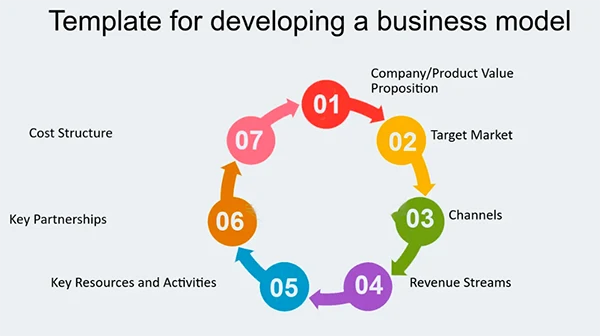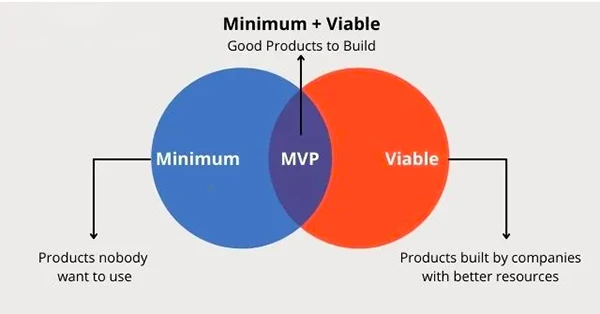8 Key Tips Before Launching Your Startup
“If you’ve got an idea, start today. There’s no better time than now to get going.”
– Kevin Systrom (Founder of Instagram)
An idea can change the way we live and function. It is the seed that helps any company grow from a startup to a big brand. However, the first step always seems risky and complex because there are so many processes to manage.
If you are at the precipice of starting a million-dollar concept, it is relevant to know how to proceed cautiously. Worry not, because in this article, we will support you with eight key tips to consider before launching a startup.
Gain Entrepreneurship Knowledge
Understanding the details of entrepreneurship is vital for building a strong foundation.
Courses and degrees in entrepreneurship can expand your “entrepreneurial toolbox,” helping you acquire a mix of knowledge, strategy, discipline, and experience.
They can also instill a continuous learning and agility mindset, that helps a brand to weather the volatile markets. Most leaders in any sector also have problem-solving expertise that is gained by first being a good student.
An entrepreneurship online degree equips you to recognize opportunities, understand various management roles, and develop a broad range of skills significant for your venture.
Start with a Solid Idea
A compelling idea is the cornerstone of any successful startup. This concept should be deeply connected to your passions and knowledge, offering a unique solution to problems in your immediate environment.
Think about the challenges people around you face and how your expertise can provide effective solutions.
A new venture flourishes not just on financial aspirations but on a foundation of innovation and real-world impact.
If your concept lacks originality or relevance, consider refining it or exploring established business models like franchises that offer proven success paths.
DO YOU KNOW?
The co-founder of Reddit, Alexis Ohanian, started the company as a social media platform but later modified it to a system of organizing conversation topics into subtopics that attracted millions of users.
Formulate a Clear Vision
A vision is the guiding star for your startup, illustrating what you aspire to achieve in the long term.
This vision should be ambitious yet attainable, reflecting your company’s values and purpose.
Communicating this vision effectively to stakeholders, including potential investors, employees, and customers, is necessary.
Clarity in purpose serves as a roadmap, guiding your strategic decisions and helping align your team’s efforts toward common goals.
It should be inspiring, fostering a sense of belonging and motivation among everyone involved with your venture.
Test Your Idea Thoroughly

The only way to understand if your product or services will stand the test of time is by reaching your potential users. Therefore, rigorously testing your idea against market realities is important.
This involves not only expert interviews and competitive analysis but also gauging potential customer response and market trends.
It’s about understanding the nuances of your target market, identifying gaps in present needs, and assessing how your project can fill these gaps.
Testing should involve mixing and experimenting with different approaches, providing a comprehensive view of the challenges and opportunities.
This phase is pivotal in avoiding costly missteps and refining your concept to better meet market needs.
Develop a Robust Business Model
Without a strong business model, your idea cannot flourish because it lacks a sense of direction. It’s like exploring the high seas on a boat without a navigation device.
A strong business model is the framework or roadmap that promises to deliver value to your customers and generate sustainable revenue.
It starts by identifying your target customer segments, defining value propositions, and establishing key partnerships and channels.
As an entrepreneur, you should remember to create a robust, adaptable model that can withstand market changes according to customer feedback.
This ensures that your product or service continuously improves to meet your market’s changing needs and preferences. In this way, your company will be able to stand out among a sea of competitors as an inspiring and profitable venture.

Alt Tag: Template for Developing a Business Model
Ensure Proper Registration and Legal Frameworks
The importance of legally registering your new venture cannot be overstated. This step legitimizes your product and services, protects your intellectual property, and sets clear ownership boundaries.
Registration also plays a significant role in establishing your brand’s credibility, which is vital for building customer trust and attracting investment.
Ensure that all legal documents, including partnership agreements, are meticulously drafted and reviewed by legal professionals.
This legal foundation safeguards your interests and provides a clear structure for resolving disputes and managing transitions within the company.
Create a Minimum Viable Product (MVP)
An MVP is valuable for validating your business concept with minimal resources. This initial version should focus on core functionality that addresses the primary needs of your target audience.
An MVP is not just about building a product; it’s about learning and adapting based on user feedback.
This stage is necessary for understanding customer preferences and refining your value proposition with less effort.
Starting with an MVP minimizes risk and investment while maximizing learning. It also sets a solid foundation for future development and scaling of your product or service without hassle.
The chart below shows how an MVP can help create a sustainable product for consistent business growth.

Cultivate a Strong Network
There is no business that could become profitable without direct engagement with like-minded and inspiring individuals.
Networking and building connections is an ongoing process; the more you invest in it, the greater the profits.
From the day you decide to turn an idea into an action plan, your engagement starts building with fellow entrepreneurs.
As you progress, initiating dialogue and being open to different ideas from mentors and industry experts is vital. They help you indirectly by providing valuable insights, advice, and support.
Attend industry events, join relevant online communities, and actively participate in discussions related to your field.
Remember, a robust network is not just about having contacts; it’s about building meaningful relationships that can guide and support you through the complexities of launching and growing your enterprise.
Conclusion
Starting a new company is more than just having a great idea; it’s about nurturing it with the right tools, knowledge, and environment.
Each step, from conceptualization to legal formalities, significantly shapes your company’s future.
Integrating continuous learning and professional guidance through entrepreneurship courses can provide a comprehensive understanding of business dynamics, enhancing your chances of success.
These tips will help you get better equipped to navigate the complex yet rewarding journey of launching your startup.
The path of entrepreneurship is not just about reaching a destination but also about the growth and learning that occurs along the way.








